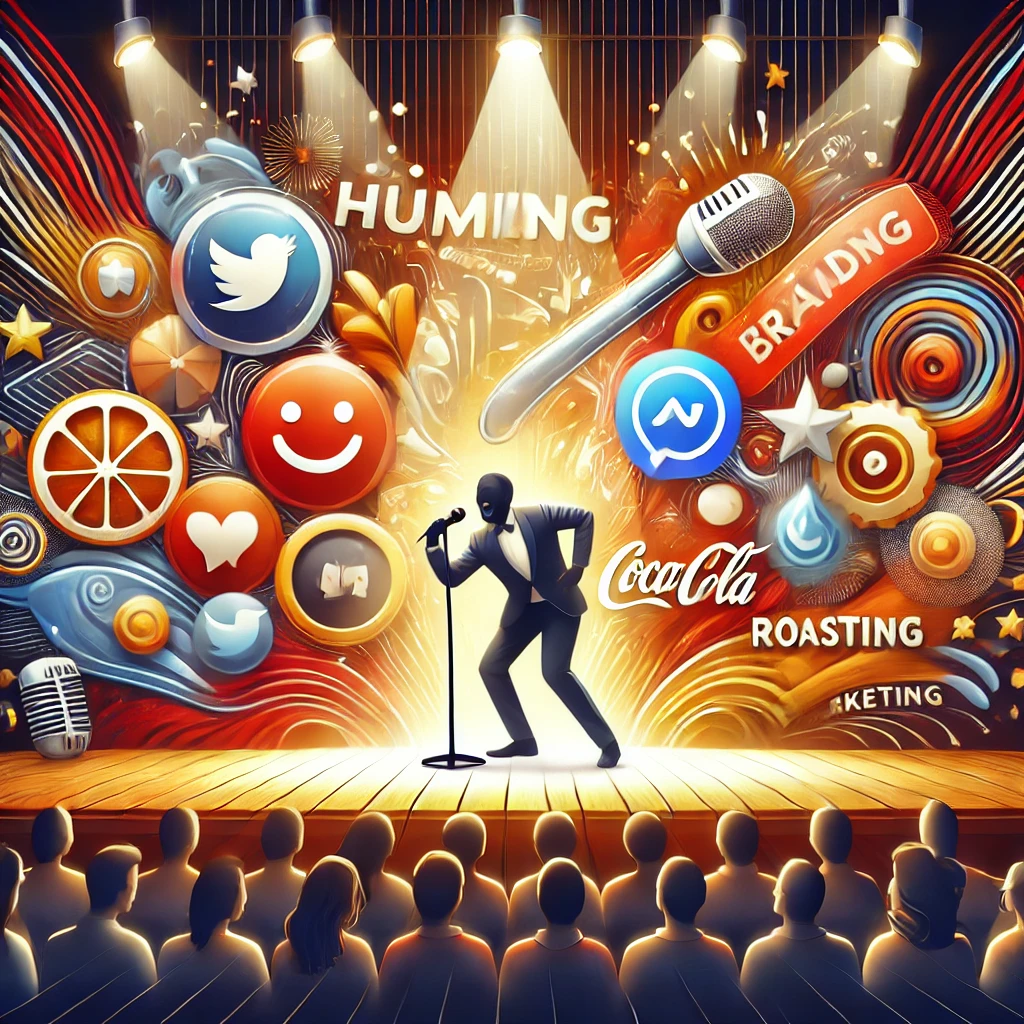The Power of Humor: How Roasting is Reshaping Modern Branding
In the ever-evolving world of marketing, brands are constantly on the lookout for innovative strategies to capture consumer attention and create memorable impressions. Recently, Zomato and Unacademy collaborated with comedian Samay Raina for their events, where he humorously "roasted" these brands. While unconventional, this approach has sparked discussions about the role of humor, especially roasting, in modern branding. This article explores the nuances of this strategy, its impact on brand image, consumer perception, and sales, and whether roasting is a sustainable method of branding.
What is Roasting in Marketing?
Roasting, in its essence, is a form of humor where a subject is playfully criticized or mocked, often highlighting flaws or quirks. When applied to branding, roasting involves allowing comedians or influencers to humorously critique a brand—its offerings, challenges, or even its competitors. This self-aware and often self-deprecating approach can humanize a brand, making it more relatable to consumers.
Zomato and Unacademy: Case Studies of Roasting as a Marketing Strategy
Zomato’s Collaboration with Samay Raina
Zomato, known for its witty social media presence, has always embraced humor to connect with its audience. By collaborating with Samay Raina, a popular comedian with a massive fanbase, Zomato took its humor-centric strategy to the next level. During the event, Raina playfully mocked Zomato’s delivery times, app glitches, and customer interactions. This approach resonated with audiences, as the jokes touched on relatable experiences while showcasing the brand’s willingness to embrace criticism.
Unacademy’s Collaboration at “Pratishtha”
Unacademy’s collaboration with Samay Raina during its 9th-anniversary event, “Pratishtha,” followed a similar trajectory. Raina’s roast included humorous takes on the platform’s educators, competitors, and even internal operations. The highlight was his jabs at industry rivals, which not only entertained the audience but also subtly reinforced Unacademy’s market position. The event generated significant social media buzz, with clips from the roast going viral and sparking discussions online.
How Roasting Impacts Brand Image
- Humanizing the Brand: Allowing a comedian to roast the brand demonstrates confidence and self-awareness. This humanizes the brand, making it appear approachable and relatable.
- Breaking Through the Noise: In a crowded marketplace, humor—especially roasting—stands out. It captures attention quickly and ensures that the brand remains top-of-mind for audiences.
- Appealing to Younger Audiences: Millennials and Gen Z consumers value authenticity and humor. Roasting aligns with their preferences, creating a positive association with the brand.
- Building Brand Loyalty: By addressing common consumer grievances in a lighthearted manner, brands show they are listening to their audience. This approach can foster loyalty, as consumers feel heard and valued.
The Connection Between Roasting and Sales
- Increased Engagement: Roasting generates conversations on social media, leading to increased engagement. This buzz often translates into higher website traffic and app downloads, which can boost sales.
- Strengthened Emotional Connection: Humor creates positive emotions, which are linked to purchase intent. When consumers feel good about a brand, they are more likely to choose it over competitors.
- Enhanced Differentiation: In industries with similar offerings, a unique marketing strategy like roasting can set a brand apart, attracting new customers.
- Word-of-Mouth Marketing: Memorable roasting events often become talking points among consumers, spreading awareness through word-of-mouth.
Potential Risks of Roasting as a Branding Strategy
- Offending Audiences: Misjudged humor can backfire, alienating certain consumer segments or sparking backlash.
- Overemphasis on Flaws: Highlighting a brand’s flaws, even humorously, might reinforce negative perceptions if not handled delicately.
- Competitor Reactions: Referencing competitors in a roast can lead to retaliatory campaigns or legal challenges, depending on the tone and content.
- Short-Term Impact: Roasting events generate immediate buzz, but their long-term impact on brand equity and sales may be limited unless reinforced by consistent messaging.
Best Practices for Using Roasting in Branding
- Know Your Audience: Understand the demographic and psychographic profile of your audience to ensure the humor aligns with their preferences.
- Set Clear Boundaries: Work with comedians to establish guidelines on sensitive topics to avoid crossing lines.
- Focus on Relatability: Ensure the roast touches on relatable experiences that resonate with the audience while showcasing the brand’s strengths.
- Leverage Social Media: Amplify the event’s impact by sharing highlights on social media platforms, encouraging user-generated content and engagement.
- Complement with Other Strategies: Roasting should be part of a broader marketing strategy that includes traditional and digital advertising, PR, and customer engagement initiatives.
Is Roasting a Good Way of Branding?
Roasting is undoubtedly an effective branding tool when executed thoughtfully. It aligns with the growing demand for authenticity and humor in marketing, making brands more relatable and memorable. However, it should not be a standalone strategy. Instead, it should complement other efforts to ensure a balanced and cohesive brand narrative.
In conclusion, Zomato and Unacademy’s collaborations with Samay Raina exemplify how roasting can be a powerful marketing tool. By embracing humor and showcasing self-awareness, these brands have not only captured consumer attention but also reinforced their market positions. While roasting comes with risks, its potential to create a lasting impact makes it a valuable addition to modern branding strategies. As consumers increasingly seek authenticity and entertainment, roasting may well become a staple in the marketing playbook of the future.
